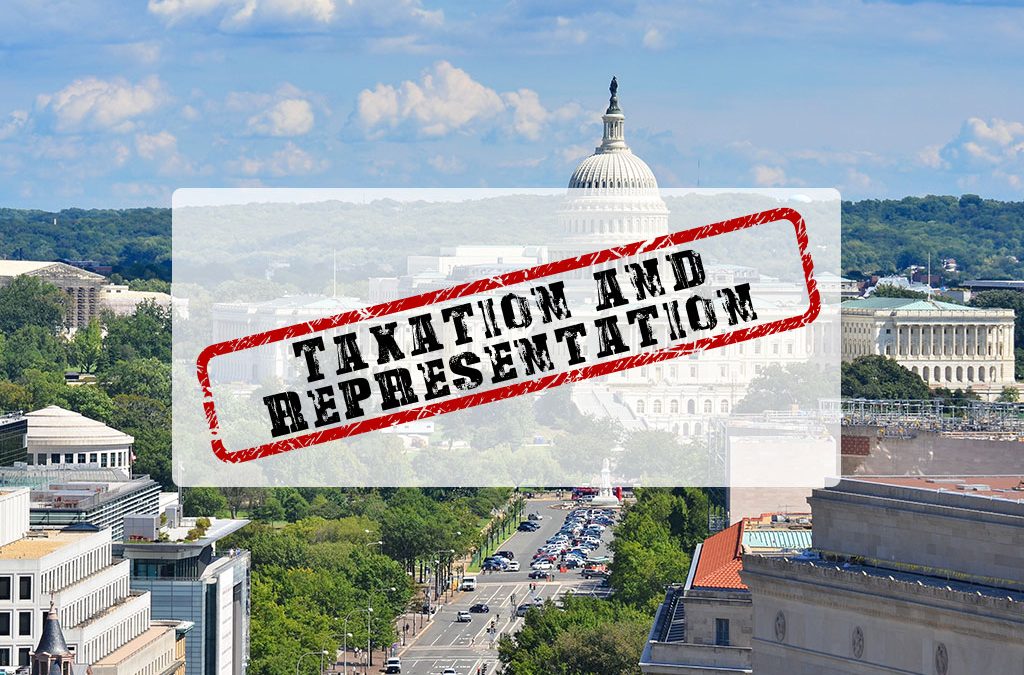The data is in! See what family owned businesses are saying about today’s challenges and opportunities.
Yellen Discusses IRA Credits, Global Minimum Tax and More Before Ways and Means Committee: On April 30, Treasury Secretary Janet Yellen appeared before the House Ways and Means Committee to discuss President Biden’s Fiscal Year 2025 Budget Request. As is typical of budget hearings, Yellen used the hearing to discuss the administration’s broader tax agenda, including ongoing Treasury Department efforts to finalize various energy-tax provisions in the Inflation Reduction Act (IRA, Pub. L. 117-169), and negotiations with the Organisation for Economic Co-operation and Development (OECD) on the ongoing two-pillar global tax agreement. She also fielded a range of questions on issues of interest to House tax writers.
Another major topic of discussion was the ongoing negotiations on the OECD’s two-pillar tax agreement, which includes a global minimum-tax regime that will significantly affect U.S. multinational corporations. Republicans contended that widespread enactment of the Pillar Two minimum tax by foreign governments will lead to the loss of U.S. tax revenues, citing a recent assessment by the Joint Committee on Taxation (JCT). Yellen responded that the JCT’s findings represented an “extreme negative case” and further analysis indicates that the agreement would most likely result in positive tax revenues for the United States. Republicans also expressed concerns that the U.S. credit for research and development (R&D) would be devalued under the agreement and place U.S. multinationals at a competitive disadvantage. Yellen responded that the Treasury Department continues to negotiate with the OECD with regard to the U.S. R&D credit and has achieved favorable tax treatment for other U.S. tax credits under the Pillar Two regime.
IRS Issues Final Rules on Sections 25E and 30D Vehicle Credits: On May 3, the Treasury Department and Internal Revenue Service (IRS) released final regulations concerning critical mineral and battery component requirements for the Section 30D Clean Vehicle Credit, as well as transferability guidance with respect to the Section 25E Credit for Previously Owned Clean Vehicles and the Section 30D Clean Vehicle Credit, both of which were enacted as part of the Inflation Reduction Act (IRA, Pub. L. 117-169). The Section 30D credit allows automakers to claim a credit of up to $7,500 per new clean vehicle, with $3,750 awarded for vehicles meeting applicable critical minerals requirements and $3,750 awarded for vehicles meeting battery component requirements. The Section 25E credit allows for purchasers of previously owned clean vehicles to receive a credit up to $4,000 if the sale price of the vehicle was $25,000 or less, subject to income limitations and vehicle eligibility requirements.
House Lawmakers to Introduce R&D Tax Bill for Microchip Manufacturers: On May 2, House Foreign Affairs Committee Chair Michael McCaul (R-TX) announced that he is working with Reps. Doris Matsui (D-CA) and Suzan DelBene (D-WA) on a bill to provide microchip manufacturers and designers with a 25% research and development (R&D) tax credit. The bill also would expand the scope of the CHIPS and Science Act (Pub. L. 117-167) to allow more types of facilities to be eligible for the bill’s manufacturing credit. A spokesperson for Rep. McCaul noted that the bill would be introduced in the next few weeks, to which Rep. McCaul said he would seek to attach the bill to the National Defense Authorization Act (NDAA) reauthorization bill or include bill language in a 2025 tax bill.

About Brownstein Hyatt Farber Schreck
Brownstein Hyatt Farber Schreck is a unique law firm. Walk into any of our offices and you’ll immediately recognize a different type of energy. Complacency doesn’t have a place here. Flexibility and inspiration do. Our culture and enthusiasm allow our attorneys, policy consultants and legal staff to stay ahead of our clients’ needs and provide them with the resources they require to meet their business objectives.
We hope you've enjoyed this article. While you're here, we have a small favor to ask...
As we prepare for what promises to be a pivotal year for America, we're asking you to consider becoming a member.
The need for fact-based reporting of issues important to family owned businesses and protecting a lifetime of savings has never been greater. Now more than ever, successful families and family owned businesses are under fire. That's why Family Enterprise USA is passionately working to increase the awareness of issues important to family owned businesses built on hard work, while continuing to strengthen our presence on Capitol Hill. The issues we fight for or against with Congress in Washington DC include high income tax rates, possible elimination of valuation discounts, increase in capital gains tax, enactment of a wealth tax, and the continued burden of the gift tax, estate tax and generation skipping tax.
Family Enterprise USA promotes generationally owned family business creation, growth, viability, and sustainability by advocating for family businesses and their lifetime of savings with Congress in Washington DC. Since 2007, Family Enterprise USA has represented and celebrated all sizes, professions and industries of family-owned enterprises and multi-generational employers. It is a bi-partisan 501.c3 organization. Family foundations can donate.
#incometax #CapitalGainsTax #R&DExpensing #DontPunishSuccess #GrantorTrusts #StepUpinBasis #likeKindExchanges #AcceleratedDepreciation #EstateTax #Deathtax #wealthtax #taxLegislation #CongressionalCaucus #incometaxrates #repealestatetax #AdvocatingForFamilyBusinesses #FamilyOwnedBusiness #WomenOwnedBusiness @FamilyEnterpriseUSA #FamilyEnterpriseUSA

